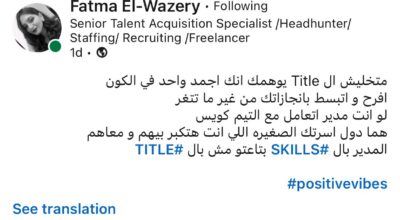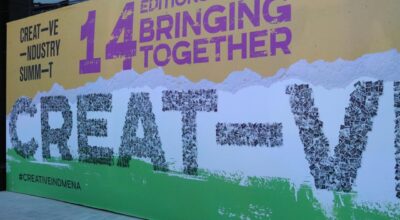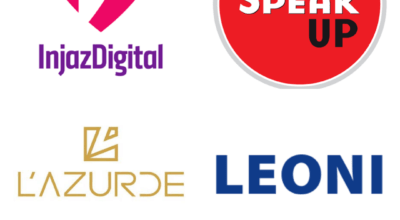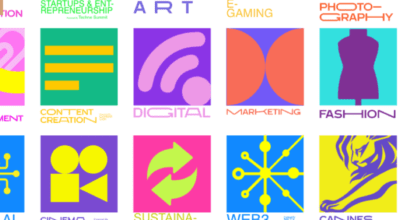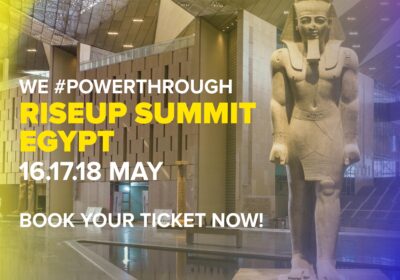Here are 6 business lessons that could help you mitigate the negative impact of crises—like the coronavirus pandemic—on your business.
1. Your Business Should Adapt To New & Unpredictable Circumstances
An evident example of this was demonstrated by Dr. Nourhan Kandil, founder of Doctor Baby, a superfood brand whose promise revolves around immunity-strengthening. Kandil introduced a green-tea powder known for fighting cancer and fortifying one’s immunity to cope with consumers’ growing health concerns.

Dr. Nourhan Kandil. Photo via Nourhan Kandil.
The executive director of Cairo University’s Faculty of Economics and Political Sciences Business Incubator (FEPSBI), Heba Zaki, stated that enterprises face the struggle of choosing whether to stop working altogether or adapt to the present situation and learn from it. Referencing her own students who successfully adapted their business models accordingly; Zaki reminded us once again that it all comes down to resilience and marching forward in new territory.

Heba Zaki, founder of FEPS Business Incubator. Photo via Women of Egypt.
Growing in the Pandemic Can Also Be Challenging
Advocating what Zaki said, CEO of Jordan-based online-course portal Edraak, Sherine Yacoub, stated that while online education was a gold mine during the pandemic, its on-ground operations witnessed significant changes during Jordan’s lockdown period. Yacoub said that adapting to new challenges is a must for any business; even digital ones. Between March & September 2020, Edraak had a surge in newly registered students; amounting to a 158% total increase to their 4.5 million students.
Yacoub added that Edraak’s work-from-home employees had to elevate their creativity in providing and promoting educational content. Her experience proves that be it as it may, online businesses were also affected by the pandemic. Even if they were affected by challenges imposed on them by rapid growth.
Young Entrepreneurs Need To Be Trained & Prepared for This Radical Shift
FEPSBI’s program manager and vice director, Maha Khalel, talked about the program’s digitization and how it gave rising entrepreneurs a real-life sense of remote working and learning. Despite its threatening and unpredictable nature, the pandemic presented an opportunity. It urged them to change their business model and shift their incubation programs & services to the digital sphere and taught them how to respond quickly to an unforeseen issue and continue to educate their students in a new and different methodology.
“It didn’t mean that we stop working; it meant we had more time to re-think and get exposed to a different experience.” – Maha Khalel, FEPSBI Program Manager and Vice Director.
2. Female Health Professionals Also Had To Adapt To New Landscapes
In their talk, three females from startups in the healthcare sector discussed how they navigated the early phases of the pandemic while carrying out both their professional and societal duties.
The women narrating their experiences were founder & CEO of Chefaa (an Egyptian online pharmacy), Doaa Aref; head of communications at AstraZeneca (the multinational pharmaceutical and biotechnology company), Vivian Fekry; and founder & CEO of CheckMe (a small medical device that measures a variety of physiological parameters), Nesma el Talawy.
The 7-year-old online pharmacy, Chefaa, endured insurmountable pressure during the pandemic. Coupled with the whole team having to work from home, it was indeed challenging. This led them to observe cultures abroad who did the same and learn from their successes, according to Aref.

Dooa Aref, founder of Chefaa. Photo via Egyptian Streets.
Another obstacle was surviving the pandemic while helping others to do the same. Aref noted that Chefaa’s digital services were altered to receive 24-hour orders and calls; to lighten the load on governmental services at the time and help as many people as they could; even outside of Egypt. Their purpose extended beyond generating revenues to helping more people; Aref explained.
AstraZeneca’s Fekry noted that while the pandemic prompted health practitioners to be more agile and adapt to new changes, it also brought on social roles. Aside from providing health solutions in critical times, the pharmaceutical company took it upon itself to address misleading health information and rumors that arose during that time. AstraZeneca addressed this substantial problem through awareness programs.
CheckMe’s Talawy advised health-tech practitioners to accept the challenges at hand and look at the positive side of things; increased demand for their services.

Founder CheckMe device, Nesma El Talawy. Photo via Nesma El Talawy.
3. A Lot Goes Into Being a Successful Female Leader
Another insightful takeaway from the event discussed the inner workings of four female leaders from Electrolux Egypt. They disclosed their personal values and principles that led them to be successful in their senior posts.
These four ladies were:
- Electrolux Egypt’s Head of Marketing, Sally El Akkad.
- Electrolux Egypt’s Head of Product Line for Wellbeing, Dalia Hassanein.
- Electrolux Egypt Business Controller, Mona Gabr.
- MEA Indirect Material Sourcing Manager, Heba Khodeir.
Kickstarting the conversation, Akkad asserted that many factors constitute a good manager. One of her managerial tactics is being empathetic by understanding work-performance mishaps or operational mistakes from a humane perspective. In her opinion, Akkad believes that creating a learning environment enables employees to learn from their mistakes and become better versions of themselves; in turn driving the business forwards.
Transparency was also an approach favored by Hassanein. Through her experience at Electrolux Egypt, she’s learned that a business is founded on two pillars: people and business. When faced with the tough decision to criticize someone, Hassanein always chooses transparency when conveying her message. That way, people realize where the problem is and actually work towards resolving it. This also goes to shape the bigger picture: helping the company become a market leader.

Workplace Transparency. Photo via BioBridges.
Khodeir added that leaders should exhibit persistence, advanced communication skills, commitment, coaching skills, and an overall team spirit.
Mom and a Manager? You Can Do Both.

Gabr, who is a working mom, emphasized that time management and efficiency go hand in hand for women seeking to balance their maternal roles and work duties. While it’s easier said than done, Gabr reassured the audience that as their children become more independent, mothers can juggle more tasks and excel at work easily.
4. Passion and Consistency Will Drive You Forward

Farida Temraz, CEO & Creative Director of TEMRAZA. Photo via Lines Magazine.
Aside from the soft skills we acquire throughout our careers, innate characteristics also play a role in how far we progress. Founder and lead designer of her couture brand Temraza, Farida Temraz, stressed this point by reflecting on her own journey when launching Temraza. She pinpointed two things that led her to success; passion and education. Believing that education is crucial to anyone’s triumphs, Temraz said that having clear objectives and being organized in your thoughts paves a smooth road to success.
“I achieved my dream through passion and education; because I believe education is the key to anyone’s success. If you’re organized in your thoughts, nothing will stop you.” – Farida Temraz, CEO & Creative Director of Temraza.
Echoing that notion, young and budding Sarah Seif, who is currently the associate to the State Minister of Information, urged younger generations to always seek knowledge when in need, learn from their superiors, and consistently strive to achieve their goals and dreams, no matter how.

Associate to the State Minister of Information, Sarah Seif. Photo via UniBridge.
5. Use the Tools You Have To Benefit Your Business & Consumers
As businesses operate in a tech-enabled world, getting well acquainted with digital tools has become a priority more than ever. Not only does it enhance the business’ market presence, but it also maintains and solidifies its public rapport.
Heba Rashed, the founder of the distinguished healthcare foundation, Mersal, made sure that their beneficiaries were always well informed about recent health updates, a rise in coronavirus cases, and useful information in battling the disease through Mersal’s digital outlets. Mersal’s primary work is to provide free medical services to those who can’t afford them. But even when the charity’s work wasn’t going as expected because of the pandemic, she believed that this could still help play a significant role in allowing Mersal’s followers and beneficiaries to stay as safe as possible during the health crisis.
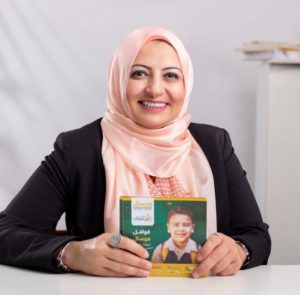
Heba Rashed, founder of Mersal Charity. Photo via Cairo Times 24.
Co-founder of Egyptian memes card game, 2oolameme, Sarah Abouelkhair, asserted the importance of “value exchange”. In order for people to engage with a brand, they need to receive value in exchange for their loyalty, she said.
She encouraged entrepreneurs to think of creative and innovative ways to make that exchange and make it impactful enough to avoid having your brand fade out from people’s minds. Her favorite way of doing so is social media because it allows brands to communicate directly to customers.

Influencer and Co-Founder of card-game 2oolameme, Sarah Abouelkhair. Photo via Sarah Abouelkhair.
“What makes a brand sustainable is to constantly provide value in exchange for customer loyalty; so you don’t fade out like other brands did.” – Sarah Aboulkhair, Co-Founder of card-game 2oolameme.

Influencer, Founder & CEO of White & White Production House, Logina Salah. Photo via Lojaina Salah.
Lastly, CEO & founder of White & White Production House, Logina Salah, clarified how good word of mouth through one’s digital presence isn’t enough for a business. Entrepreneurs need to understand the algorithm based on which these platforms operate and learn how to utilize this information to their benefit, according to Salah.
6. The Business World Needs More Female Figures
SHE CAN’s audience was treated to a virtual session from GoDaddy, the American internet domain registrar and web hosting company. According to a GoDaddy survey, 66% of Egyptian enterprises said that women are well presented in their workforce. GoDaddy’s regional director for MENA, Selina Bieber advocated the need for a stronger female presence in Egypt’s entrepreneurial sphere, but also as consumers.
Bieber shared that females make up for 70-80% of consumer purchases and hold more influential power than men when it comes to purchasing decisions. That alone should urge businesses to position females as their lead target audience and empower them internally as professionals as well.
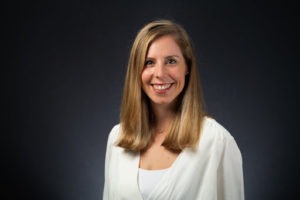
Selina Bieber. Photo via My Startup World.
” The most important thing to focus on is how sustainable economic growth and development really comes from inclusivity. That means making sure that females and women are an active part of the workforce.” – Selina Bieber, Senior Regional Director for MENA at GoDaddy.
Noting that female entrepreneurship generates more economic growth and development, Bieber listed an abundance of reasons highlighting its importance.
Alongside the aforementioned speakers, this event included a diverse array of field experts and business leaders who also shared some of their business lessons. AstraZeneca Egypt held a panel discussion on career opportunities for female medical graduates featuring its HR director, Heba Elshabrawy, and its CVRM medical lead, Eman Samy.
Who Else Was There
- Food critic & consultant, Amr Helmy.
- Founder of Whisk Catering, Mona El Sabbahy.
- Founder of Fresh Farm, Yasmine Seoudy.
- Founders of Dar Lalla, Mohamed Eldessouky & Eman Bonailat.
- CEO of Opa restaurants, Yara El Helbawi.
- Founder of Sea Salt Bakery, Passand ElHamami.
- MBC Top Chef guest judge, Marwan Hazem.
- Food producer & blogger, Asmaa Hesham.
- Panel discussion on food content creation by chefs May Yacoubi, Ghada Nawara, and Ghada Eltally.
The fashion industry also had an impressive lineup of speakers such as:
- Fashion blogger & influencer, Ingy El Engebawy.
- Founder of Sherine Helal, Sherine Helal.
- Founder of Sara Eltoukhy Couture, Sara Eltoukhy.
Last but certainly not least, the crafts industry hosted several discussion moderated by Nala Kamal:
- Founder of Rosebuds for natural products, Aliaa Ehab.
- Founder of Spring Bloom, Yasmen Adel.
- Founder of Boho Rings, Hope Mohamed.
- Founder of Areej, Areej Abutaleb.

